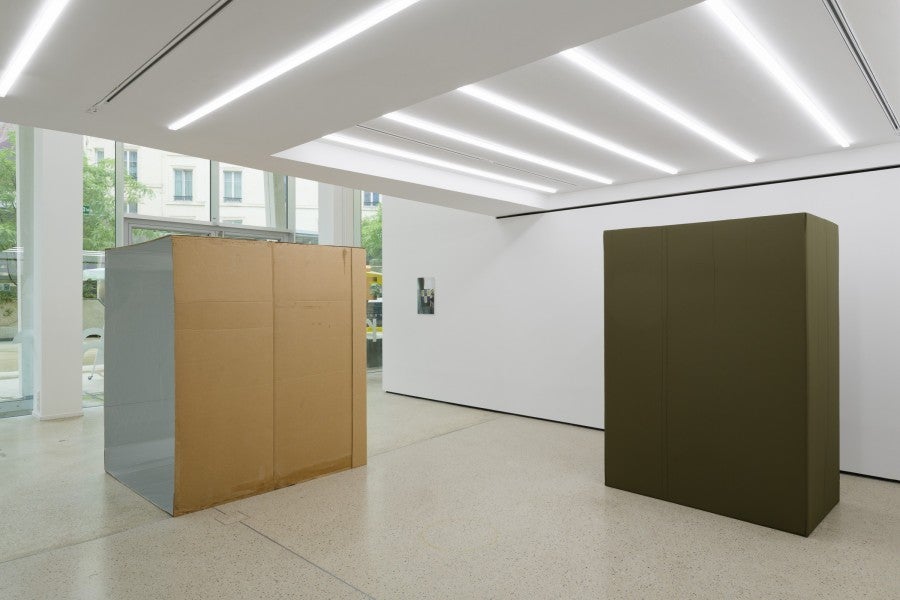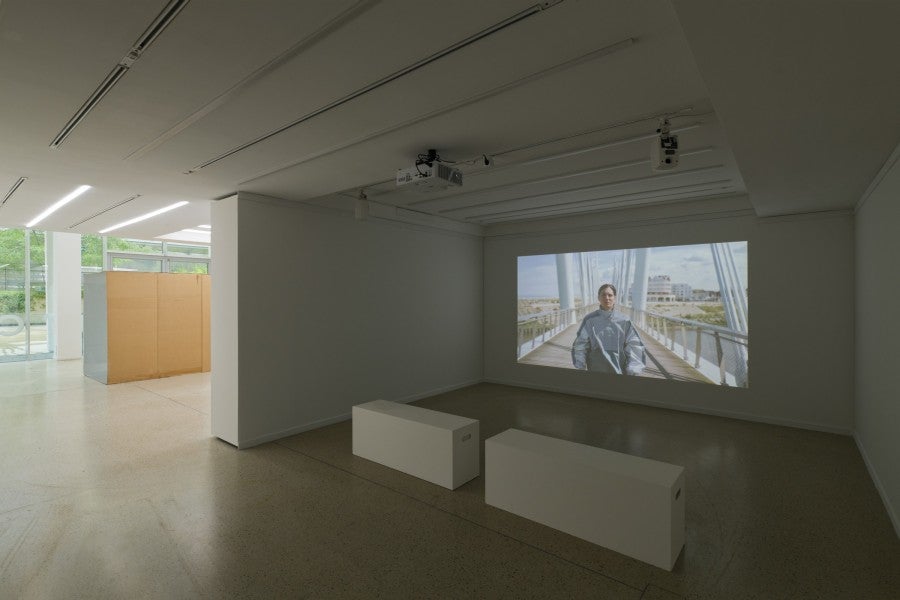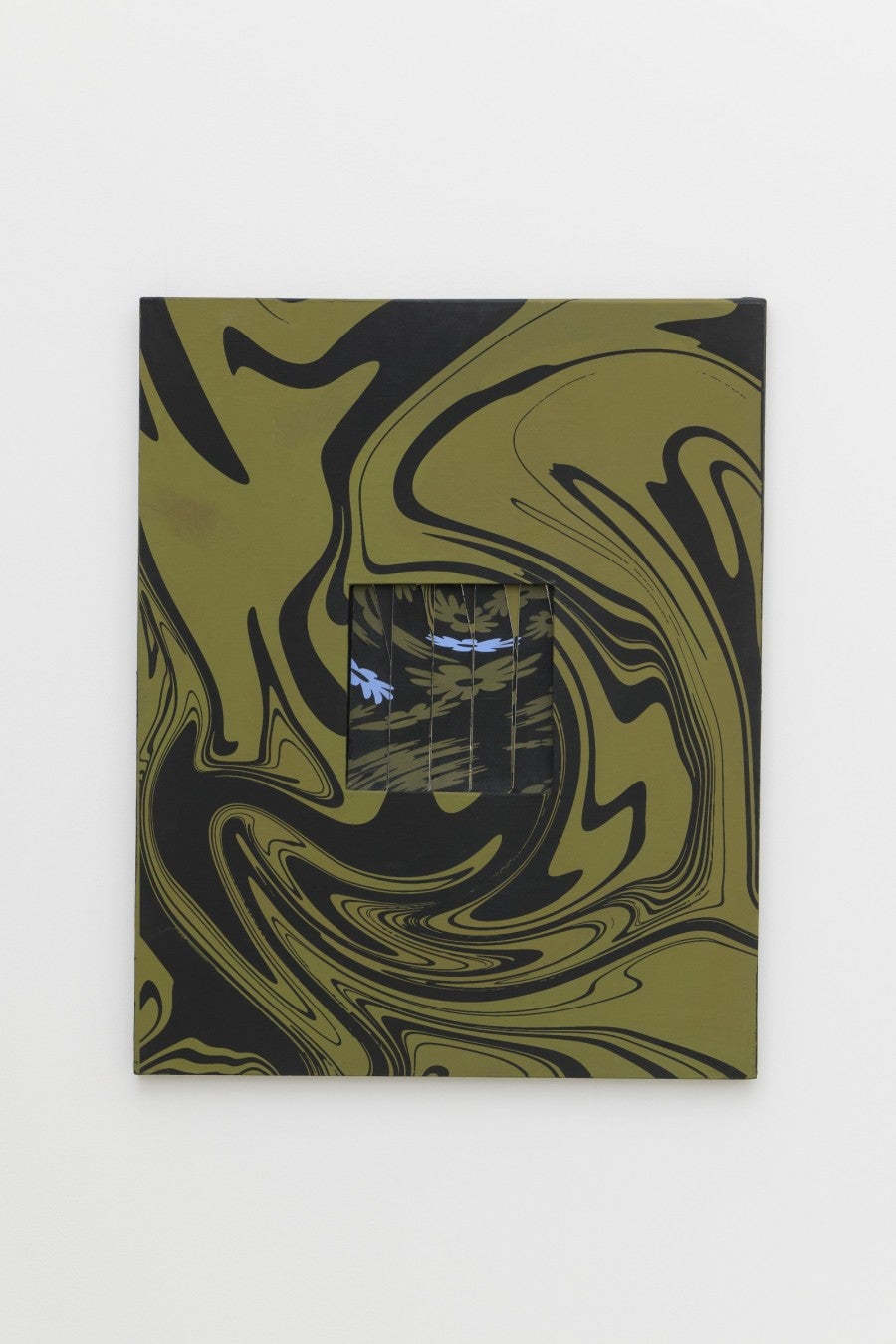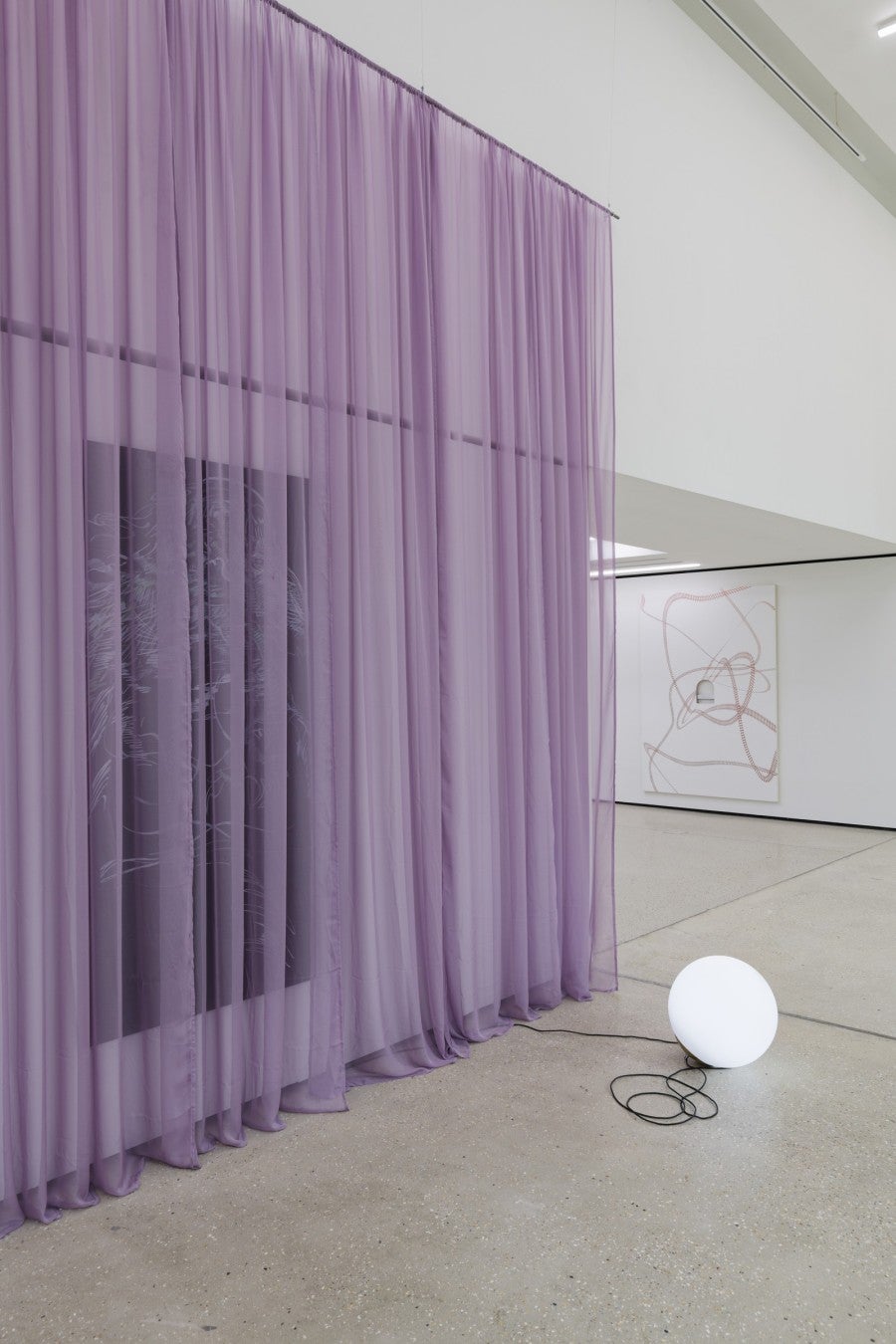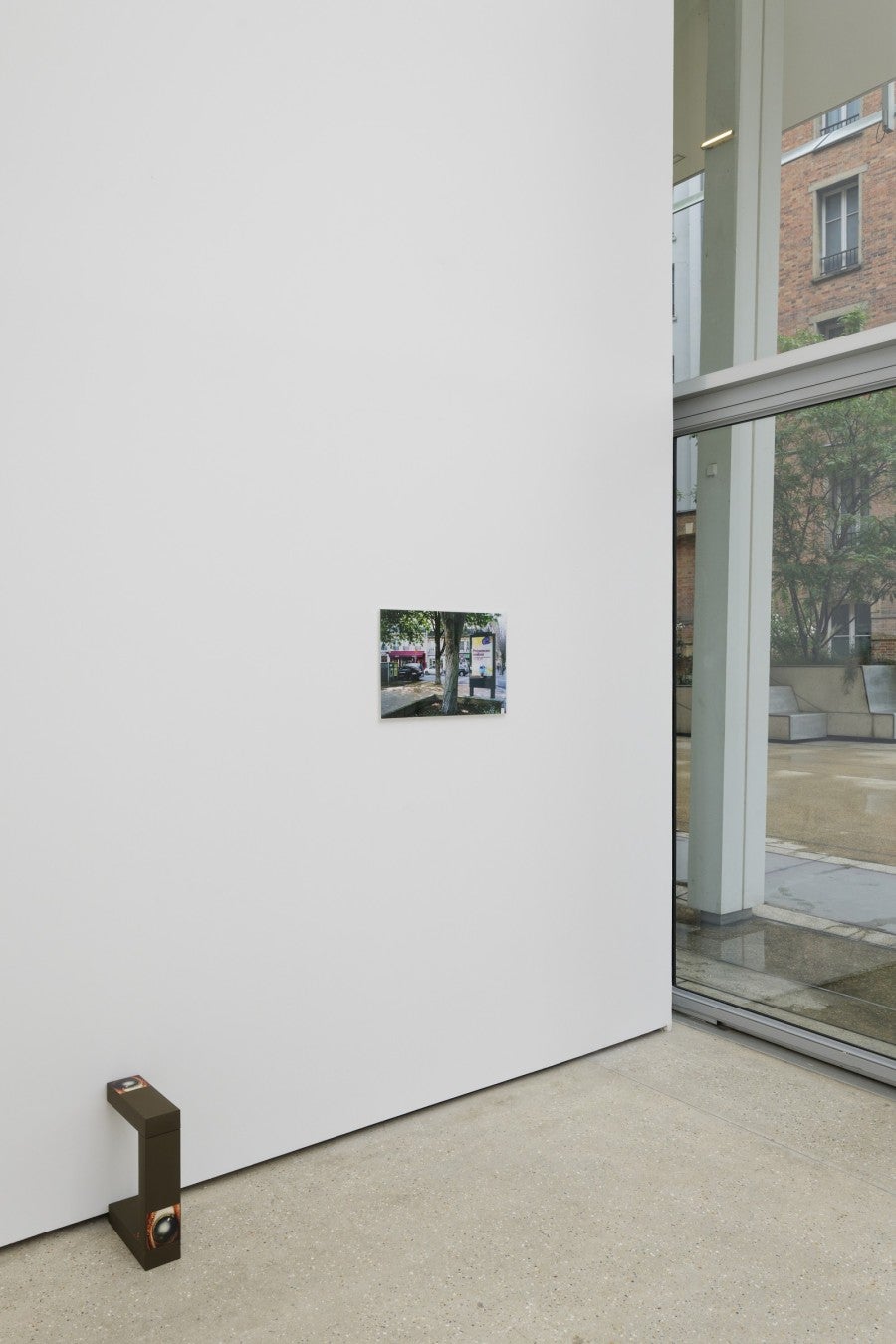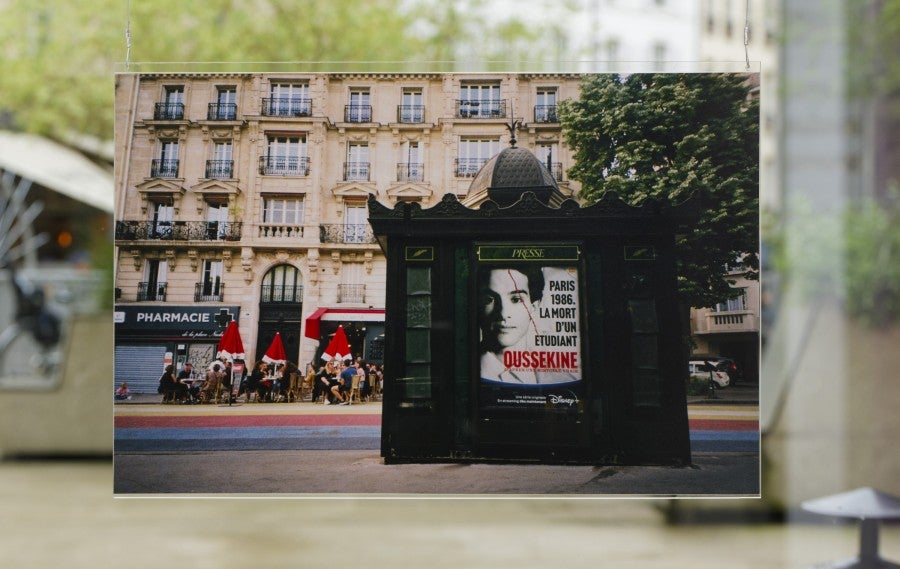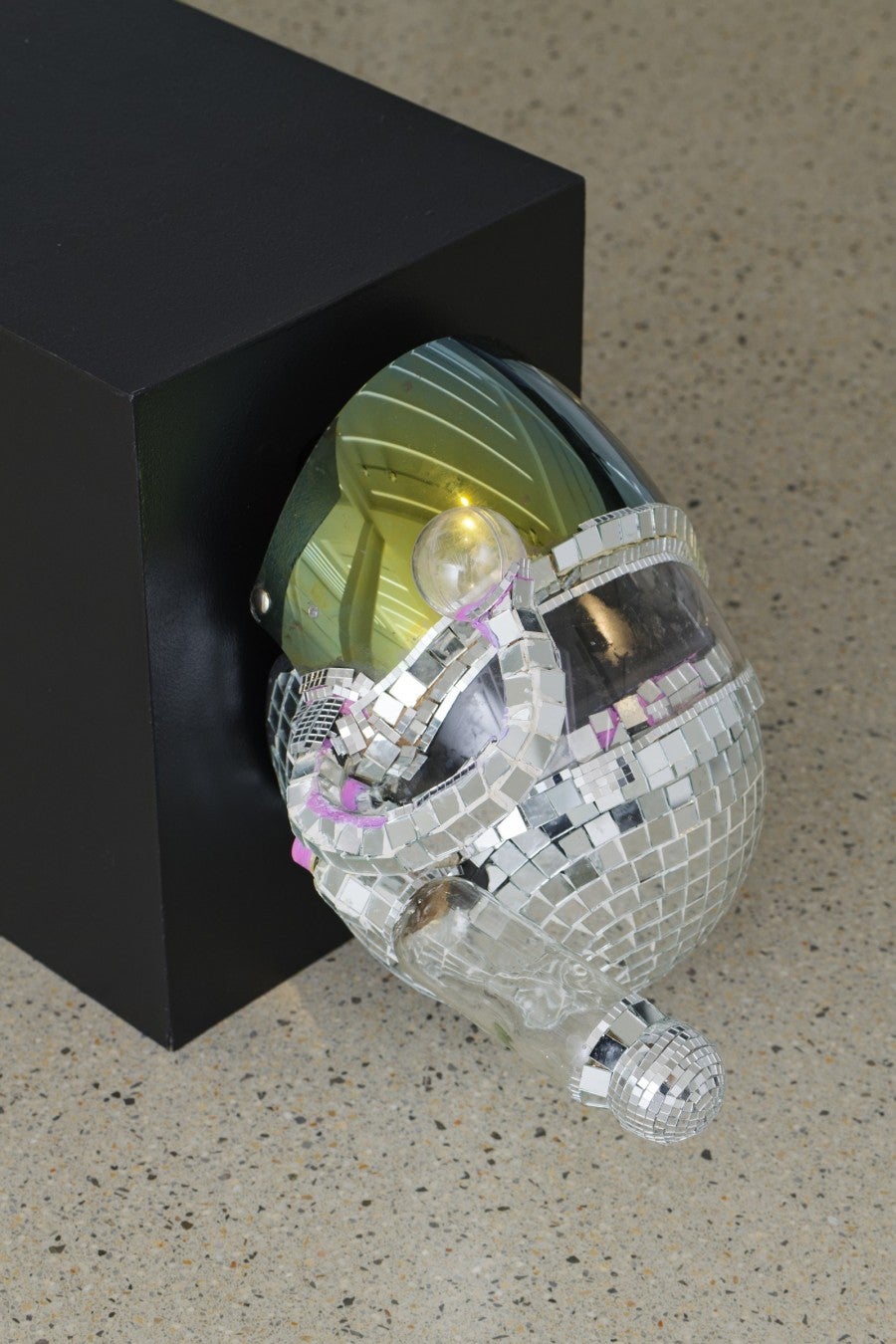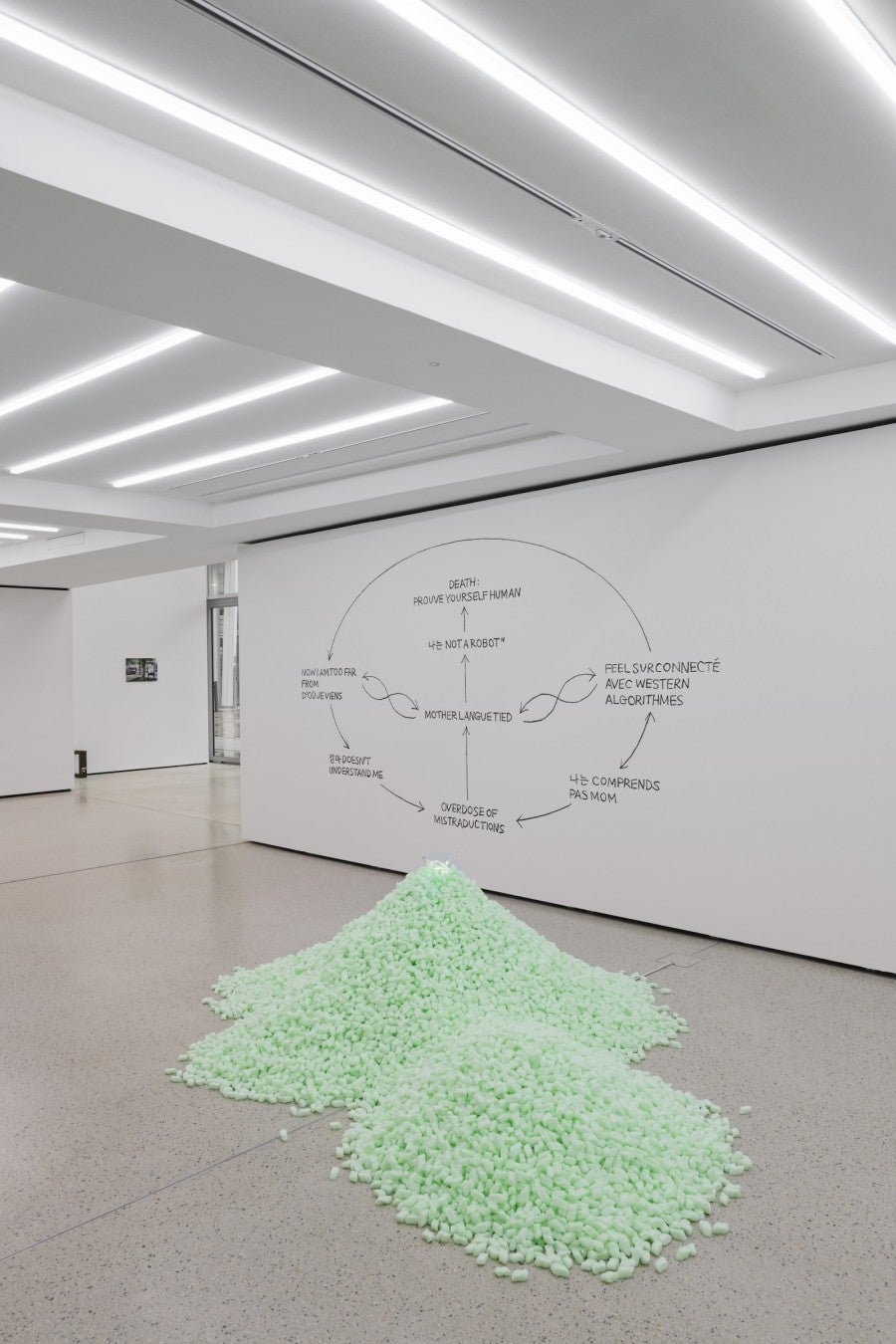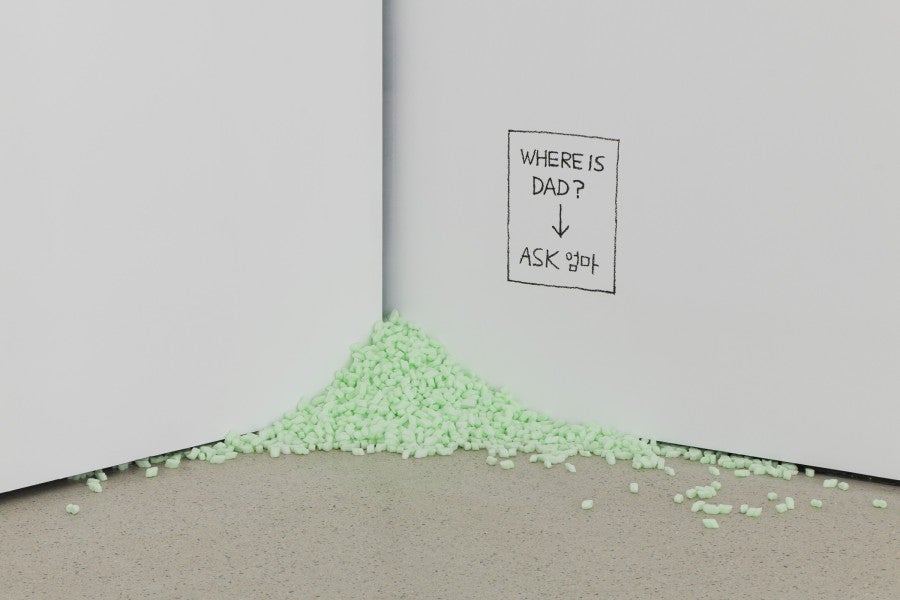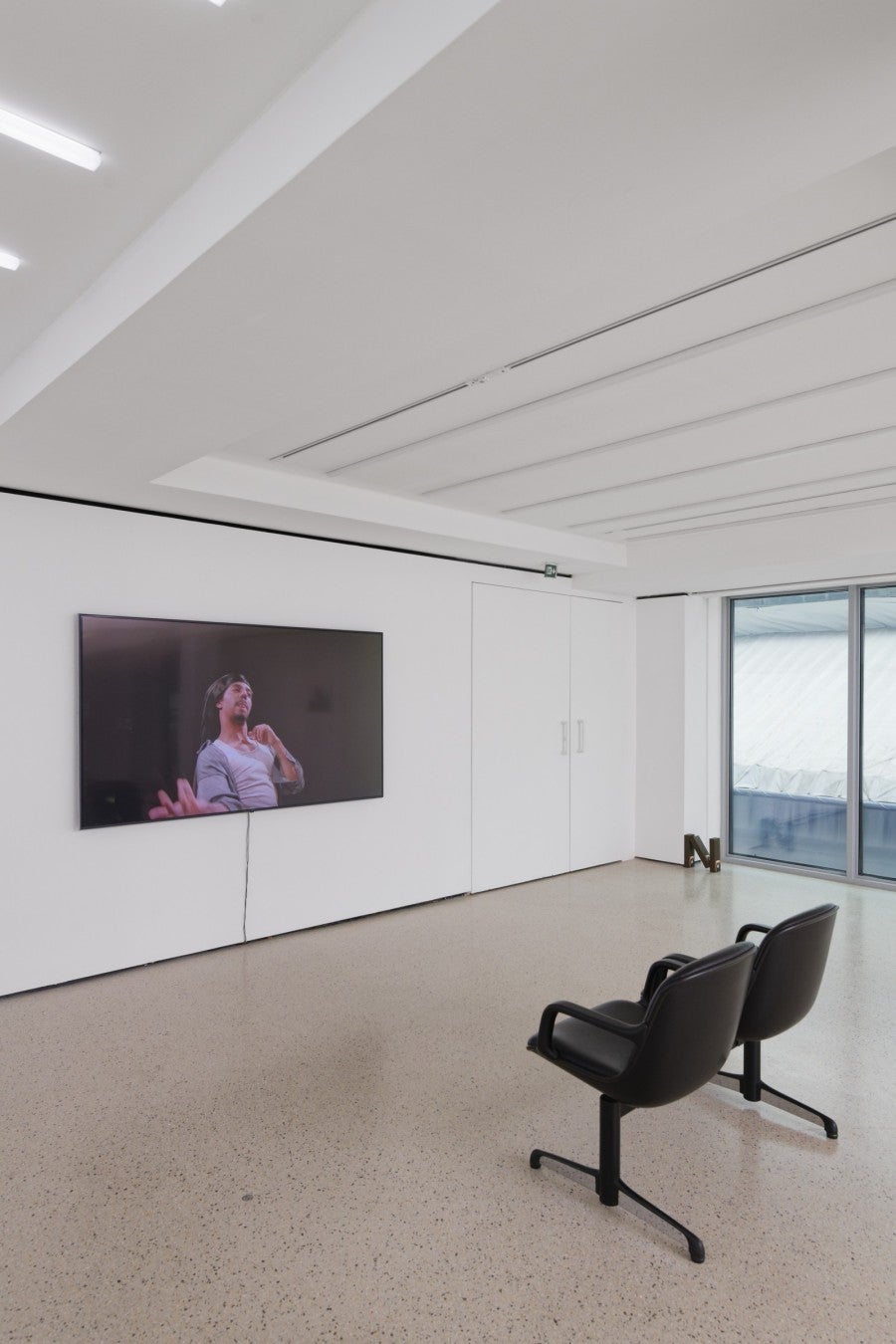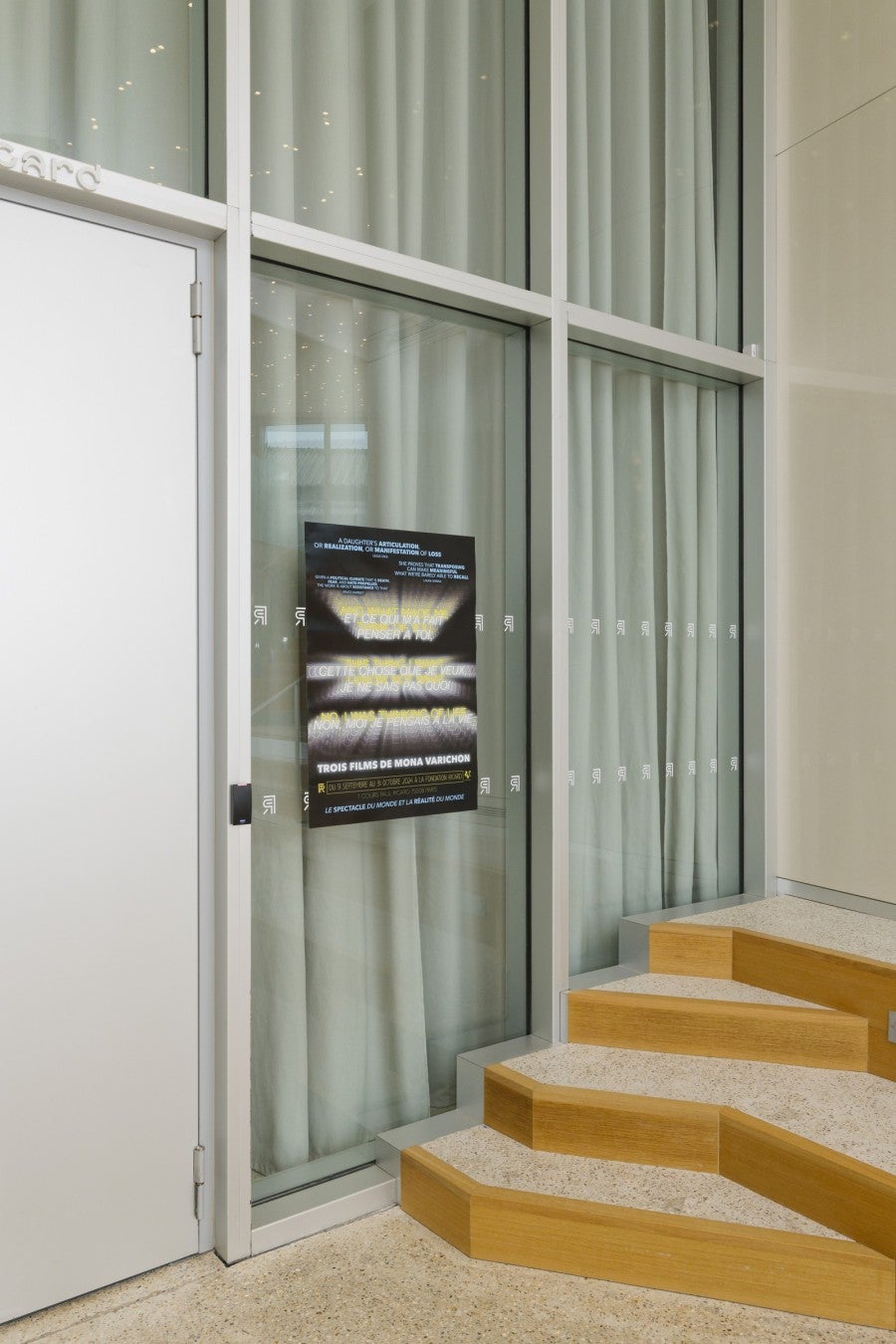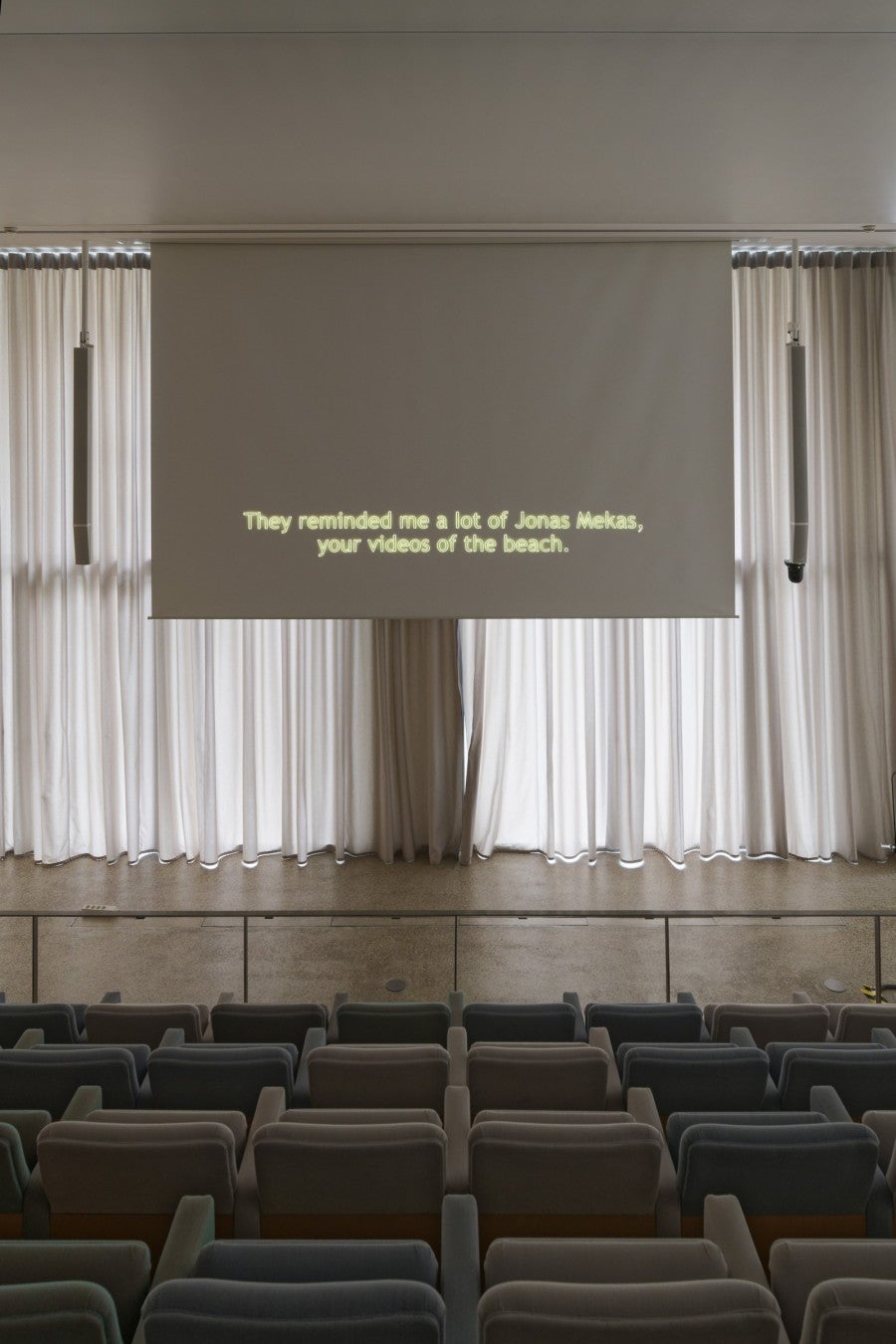All the Messages Are Emotional
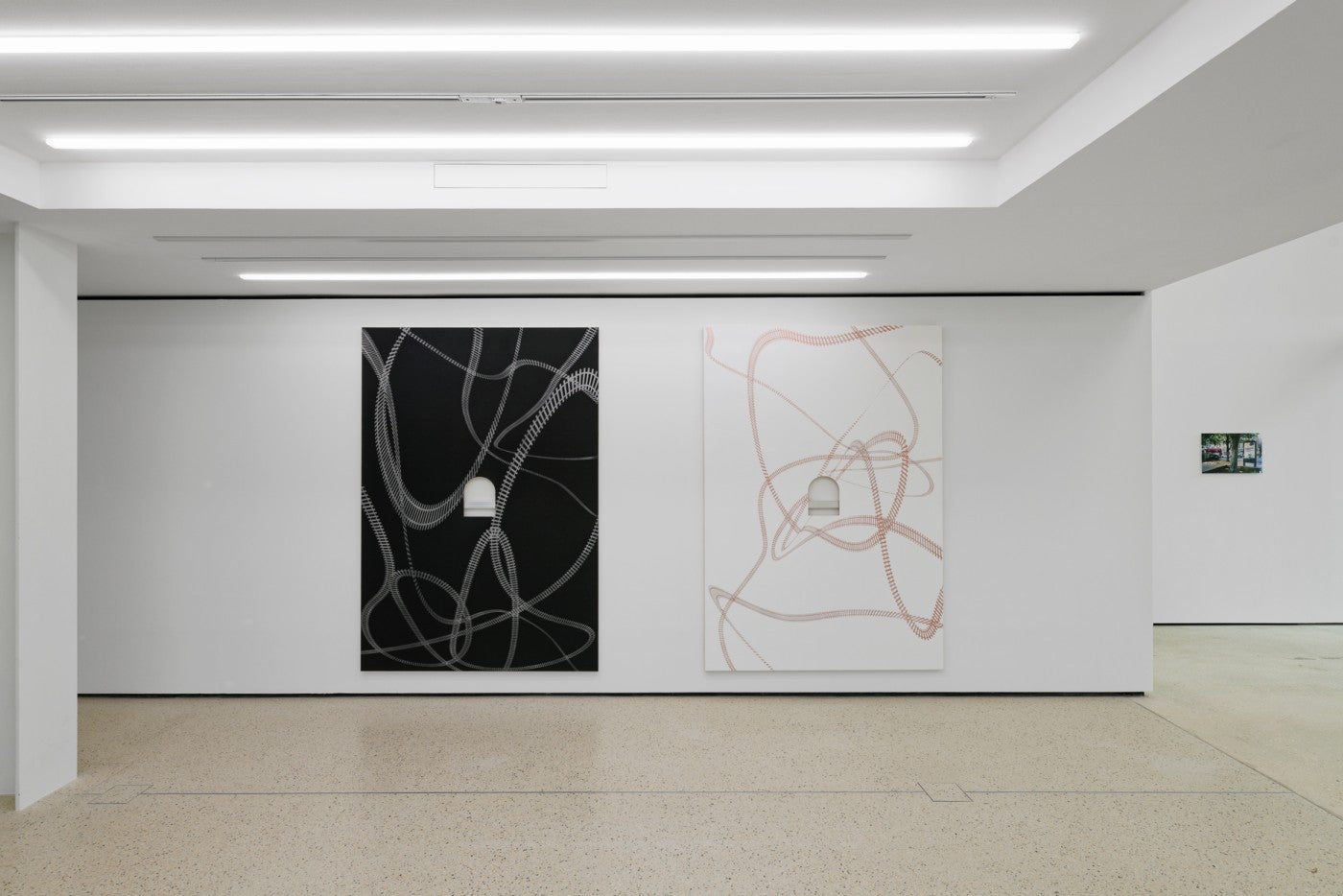
Entitled “All the Messages Are Emotional”, the 25th Fondation Pernod Ricard Prize gathers 7 artists invited by curator Arlène Berceliot Courtin: Clémentine Adou, Madison Bycroft, HaYoung, Charlotte Houette, Lenio Kaklea, Paul Maheke et Mona Varichon.
The first image that appeared to me after the invitation to organise the twenty-fifth Prix Fondation Pernod Ricard was an emoji on a wall of the New York subway. It was a smiley with a downturned mouth and eyes in spirals announcing the end of emotional conflicts with these few words: “Emotional conflicts, last day here!” To what extent does the study of conflicts and, broadly speaking, of the emotions at the heart of these tensions allow us to better understand our changing world? If the conflict is not an attack,1 then how do we undo this knot that forms every time we encounter affective dissonance or must confront a brutal aggravation of our chronic state of perpetual crisis? These are some of the questions that crossed my mind at the time and continue to linger into this new year.
According to Ann Cvetkovich (CA, 1957), the term “affect” refers as much to a conceptual problem as to something tangible. As such, it is best understood as a generic term that includes similar and more familiar words such as “feeling” or “emotion”, also spurring the movement and efforts deployed to establish a distinction between them.2 Emotion would therefore imply the idea of movement
and that goes for everything from its linguistic origins to its plastic reality. All the same, it seems to escape any attempt at an institutional or academic definition in order to circulate freely between bodies. Like emotion, affect is not inside anything nor is it outside of anything. Emotion and affect are both based on a social exploration that erases the private/public distinction and announces, through this disappearance, a form of future elocution or emancipation. Affects, like emotions and even feelings, are facts.3 In that sense they are just as dense as they are complex, because they are always situated, interpersonal and embodied. In such a way that they exist through a phenomena of transmission, or rather, a series of transfers operated from one body to another, one movement to another, one object to another.
An indispensable figure of queer phenomenology, Sara Ahmed (UK, 1950) hesitates to use the term “affect” since it was so integral to a scientific watershed in the late 1950s. She is more interested in emotion as a synonym of movement but also as a word largely used in everyday life.4 She adds that it is the objects of emotion that circulate, rather than the emotion itself.5 So how do we recognise these derivative products of emotion? And to what extent would bringing them together constitute and/or motivate the starting point of an exhibition? I am not able to answer just yet, but I am certain that in the months to come we will joyfully and enthusiastically discuss the possibility of re-affecting post-minimalist forms, about photosensitive living organisms and extra-ovarian existence, new feminist and science-fictional narratives, a collection of affected gestures in an ambitious practical encyclopaedia of dance, post-binary subjectivities and realities, the performative body as a living archive to be decolonised, and finally, translation as a political action and even a sentimental one. All kinds of speculation that allow us to envisage a collective exploration of the affective realm, beyond clichés, and thus the harbingers of new social experiences.
Through their major contribution to the theorising of affects, Lauren Berlant (USA, 1957–2021) constituted a fundamental witness of exploitation but also of the commodification of affects in the particularly aggressive neoliberal context of North America in the Capitalocene. Through a rigorous syntax, they convoke a series of largely unexplored concepts such as abandonment, desire, love, exhaustion, redress and the attrition of a fantasy of life collectively invested: “the good life”.6 Their thinking guides this project, which resonates as the ideal chance to translate one of their essays, never before published in the French language. A direct inspiration, they also provide the primary intentions of this research through the announcement of its title: All the Messages Are Emotional.
1Sarah Schulman, Le Conflit n’est pas une agression, rhétorique de la souffrance, responsabilité collective et devoir de réparation (Éditions B42, 2021).
2Ann Cvetkovich, “Affect” in B. Burgett & G. Hendler (eds.) Keywords For American Cultural Studies (New York and London: NYU Press, 2007),13–15.
3Yvonne Rainer, Feelings are Facts: A Life (Cambridge: MIT Press, 2006).
4Affect/Emotion: Orientation Matters, A Conversation between Sigrid Schmitz and Sara Ahmed (Freiburger Zeitschrift für GeschlechterStudien, Budrich Unipress, 2014).
5Sara Ahmed, The Cultural Politics of Emotion, (Edinburgh: Edinburgh University Press, 2004).
6Lauren Berlant, Cruel Optimism (Duke University Press, 2011).
© Des signes
